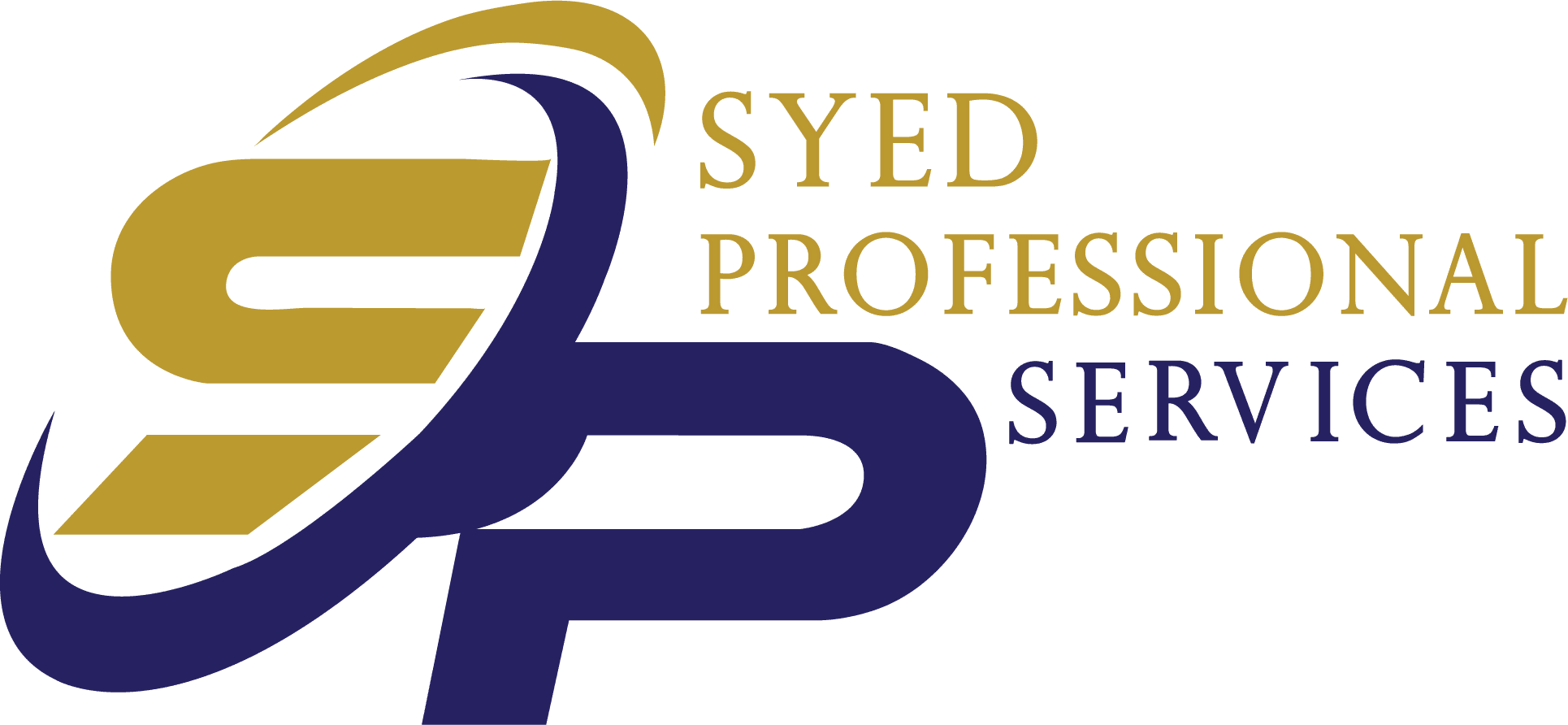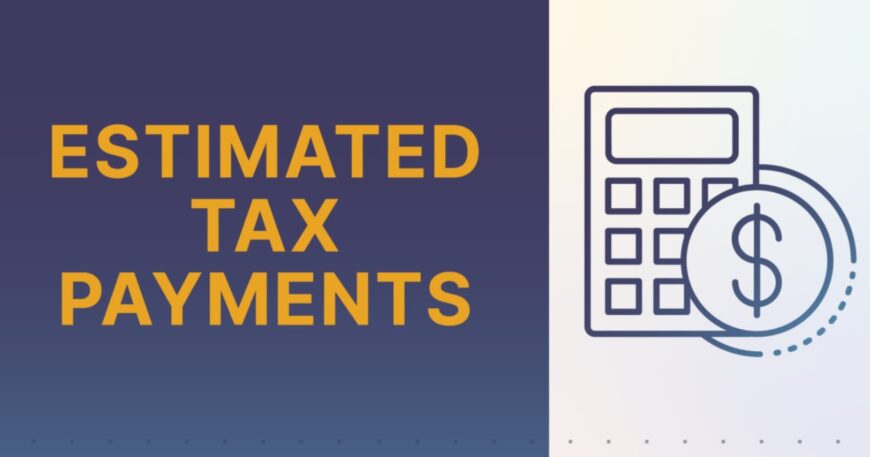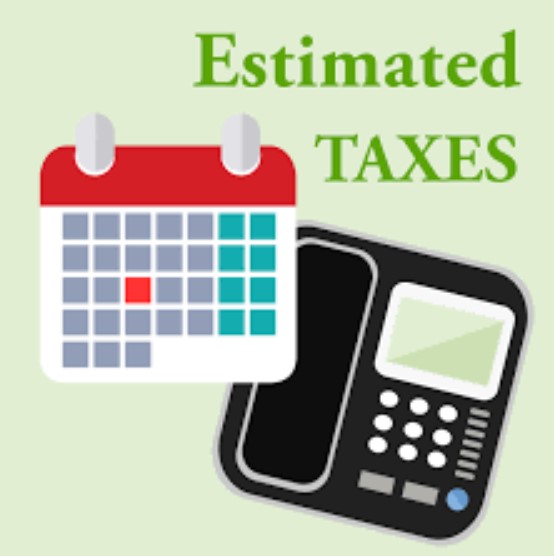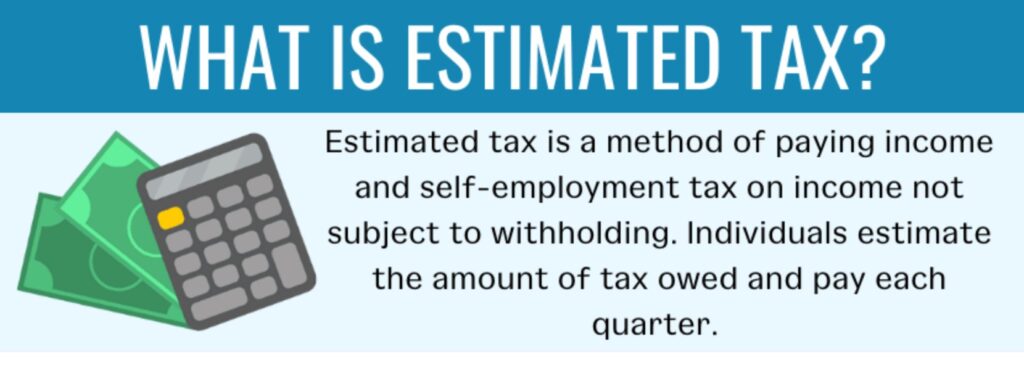Estimated Tax Payments in 2025: A Complete Guide for Individuals and Businesses
Taxes can be a headache, especially when it comes to paying them throughout the year. Whether you’re a business owner or an individual, understanding estimated tax payments is crucial to avoid penalties and make sure you meet your tax obligations. This article will break down everything you need to know about estimated tax payments, including the IRS guidelines, deadlines, and how to make payments in 2025.
Understanding Estimated Tax Payments
When you earn income that isn’t subject to withholding, such as self-employment income, dividends, or rental income, you may need to make estimated tax payments. The IRS requires these payments to be made quarterly to avoid any penalties at the end of the year.
In essence, estimated tax payments are a way for the IRS to collect taxes from individuals and businesses that don’t have a consistent tax withholding system through an employer. By making timely estimated payments, you avoid a hefty tax bill when it’s time to file your annual return.
Why Are Estimated Tax Payments Important?
Estimated tax payments are necessary for those who don’t have enough tax withheld from their income throughout the year. This includes freelancers, contractors, and those who receive substantial income from side gigs.
If you don’t make your estimated payments, you might face penalties and interest charges when you file your annual tax return. In addition to avoiding fines, regular estimated tax payments help you manage cash flow better and keep your financial planning on track.
Who Needs to Make Estimated Tax Payments?
According to the IRS, you must make estimated tax payments if:
- You are self-employed or earn income that isn’t subject to withholding.
- You expect to owe $1,000 or more in tax after subtracting your withholding and refundable credits.
- Your withholding and refundable credits will be less than the smaller of 90% of your current year’s tax or 100% of your previous year’s tax (110% if your adjusted gross income is over $150,000).
These rules apply to both individuals and businesses, making it essential to assess your specific tax situation.
Estimated Tax Payment Deadlines in 2025
For the year 2025, the IRS has set specific due dates for estimated tax payments. Missing these deadlines could result in penalties and interest. The quarterly due dates for estimated tax payments in 2025 are:
- April 15, 2025 – First Quarter Payment
- June 15, 2025 – Second Quarter Payment
- September 15, 2025 – Third Quarter Payment
- January 15, 2026 – Fourth Quarter Payment (for the 2025 tax year)
It’s important to note that these deadlines may vary slightly depending on weekends or holidays. Always check the IRS website for the most up-to-date information.
How to Calculate Your Estimated Tax Payments
Estimating your taxes correctly is crucial to avoid underpaying or overpaying. The IRS provides Form 1040-ES, which includes worksheets to help you calculate your estimated tax liability. Here’s a quick look at the steps involved:
- Estimate Your Total Income – Add up all sources of income, including your self-employment income, investment earnings, and any other taxable sources.
- Determine Deductions and Credits – Subtract any applicable deductions and tax credits to lower your taxable income.
- Calculate Your Taxable Income – Once deductions and credits are applied, the remaining income is your taxable amount.
- Apply Tax Rates – Use the IRS tax brackets to calculate the amount of tax you owe.
- Divide by Four – Divide your total tax liability by four to determine your quarterly estimated tax payments.
IRS Estimated Tax Payment Methods
Once you know how much to pay, you can submit your estimated payments to the IRS in a few different ways. The IRS offers several convenient payment methods:
- Online Payment Portal: You can pay directly through the IRS website using the IRS Direct Pay or the Electronic Federal Tax Payment System (EFTPS).
- By Check: You can also send a check with a payment voucher (Form 1040-ES) to the IRS.
- Credit or Debit Card: Payments can be made via third-party service providers if you prefer to use a credit or debit card.
Estimated Tax Payments for Businesses in 2025
If you’re a business owner, the process of making estimated tax payments is similar to that of individuals, but the complexity can increase. Many businesses, especially sole proprietorships, LLCs, or S-corporations, may need to pay estimated taxes on business income.
For businesses, it’s important to include all sources of income and expenses when calculating estimated taxes. Additionally, businesses may also be subject to employment taxes and other levies, which require careful calculation.
How Can Syed Professional Services Help with Your Estimated Tax Payments?
At Syed Professional Services, we understand the intricacies of estimated tax payments and can help you navigate through the entire process, ensuring you stay compliant with IRS guidelines. Our team of experienced professionals can assist with:
- Calculating your estimated tax payments based on your unique financial situation.
- Setting up a system to track and make timely payments.
- Offering personalized tax planning strategies to minimize tax liabilities.
By partnering with us, you can rest assured that your taxes are in good hands, allowing you to focus on what matters most: running your business or enjoying your personal life.
Frequently Asked Questions (FAQs)
How do I know if I need to make estimated tax payments in 2025?
If you expect to owe $1,000 or more in taxes after subtracting your withholding, you’ll need to make estimated tax payments. This applies to self-employed individuals, business owners, and anyone with significant income outside of standard salary payments.
Can I pay my estimated taxes online?
Yes, the IRS offers multiple online payment methods, including Direct Pay and EFTPS, which allow you to pay your estimated taxes conveniently and securely.
What happens if I miss an estimated tax payment deadline?
Missing a payment can lead to penalties and interest charges. It’s important to stay on top of the due dates to avoid extra fees. If you miss a payment, consider making it up as soon as possible to minimize penalties.
Can I adjust my estimated tax payments if my income changes?
Yes, you can adjust your estimated tax payments if your income changes during the year. If you expect to owe more or less than originally planned, you can recalculate your payments using the IRS Form 1040-ES.
Are estimated tax payments refundable?
No, estimated tax payments are not refundable, but they can be applied toward your overall tax liability. If you overpay, you can receive a refund when you file your tax return.
What if I overpay my estimated taxes?
If you overpay your estimated taxes, the excess amount will be applied to your annual tax return. You can either receive a refund or apply the overpayment to your next year’s estimated taxes.
Conclusion
Understanding estimated tax payments is essential to maintaining financial health and staying compliant with the IRS. By planning ahead, calculating your payments accurately, and making timely payments, you can avoid penalties and ensure that your tax return in 2025 goes smoothly. Syed Professional Services is here to help guide you through every step of the way, offering expert tax planning and payment assistance.
Don’t leave your tax situation to chance—contact us today to ensure your estimated tax payments are on track!
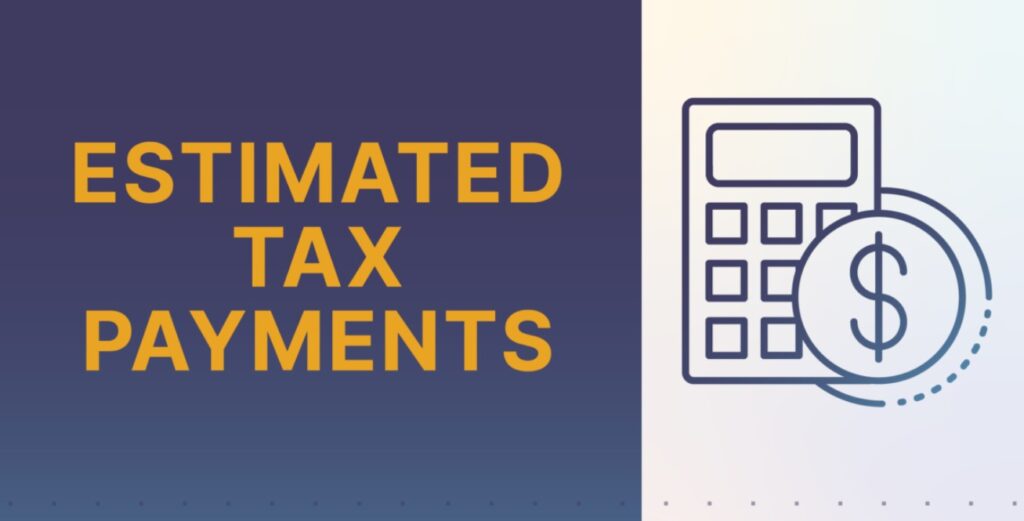
Tips for Managing Estimated Tax Payments Efficiently
Managing estimated tax payments doesn’t have to be overwhelming. With the right strategies and tools, you can stay ahead of your tax obligations and reduce the risk of mistakes. Here are some essential tips for managing your estimated tax payments effectively:
1. Set Reminders for Payment Deadlines
It’s easy to lose track of quarterly estimated tax deadlines, especially if you have a busy schedule. Setting up reminders on your calendar or using tax software can help you avoid missing a payment. Some tax apps even send notifications to your phone to remind you of due dates, ensuring you don’t forget.
2. Break Down Your Payments into Smaller Portions
If you’re concerned about the lump sum payments, consider breaking them down into smaller, monthly payments. Although the IRS requires quarterly payments, dividing your payment schedule into manageable monthly chunks can reduce stress and help with budgeting. You can make these payments through the IRS Direct Pay or EFTPS portals.
3. Track Your Income and Expenses Regularly
For self-employed individuals and business owners, keeping a detailed record of your income and expenses is essential. Regularly tracking your finances can help you adjust your estimated tax payments if your income fluctuates throughout the year. By staying proactive with recordkeeping, you’ll ensure your payments remain accurate and timely.
4. Consider Working with a Tax Professional
If the process of calculating estimated tax payments feels too complex or time-consuming, partnering with a tax professional can offer peace of mind. At Syed Professional Services, our experts can assess your income, deductions, and credits to accurately estimate your quarterly payments. This professional support can help you avoid penalties and optimize your tax planning.
How Syed Professional Services Can Help You with Tax Planning in 2025
Tax planning isn’t just about paying your taxes on time—it’s about minimizing your overall tax liability. At Syed Professional Services, we go beyond just helping you make estimated tax payments. Our comprehensive tax planning services can help you:
1. Optimize Deductions and Credits
We’ll help you identify all potential tax deductions and credits, including those that are often overlooked. Whether you’re eligible for business deductions, charitable contributions, or child tax credits, we’ll ensure you get the most out of your tax situation.
2. Plan for Retirement and Investments
Your estimated tax payments may change depending on your retirement planning, investments, and other financial activities. We’ll work with you to incorporate these factors into your overall tax strategy, ensuring that you’re not caught off guard by tax changes.
3. Adjust for Life Changes
Life events such as getting married, having a child, or starting a business can significantly impact your tax obligations. Our team can help you adjust your estimated tax payments accordingly, preventing overpayments or underpayments. If you experience any major life changes in 2025, be sure to consult with us to reassess your tax plan.
The Impact of Estimated Tax Payments on Your Tax Return
While estimated tax payments help you stay on top of your taxes, they also play a critical role in how your annual tax return looks. When you file your tax return at the end of the year, any overpayment or underpayment will be reconciled. Here’s how it works:
Overpayment
If you’ve overpaid your estimated taxes during the year, you’ll receive a refund or have the excess applied to the next year’s tax bill. Overpayments can be used to offset any taxes owed when you file your return.
Underpayment
If you’ve underpaid your estimated taxes, you’ll need to pay the difference when you file your return. Additionally, the IRS may charge interest and penalties on any underpaid amounts, which is why it’s crucial to get your estimated payments as accurate as possible.
Common Mistakes to Avoid When Making Estimated Tax Payments
Making estimated tax payments can be tricky, and mistakes can lead to penalties or unexpected tax bills. Here are some common mistakes to avoid:
1. Not Paying Enough in Estimated Taxes
If you don’t pay enough throughout the year, you may face penalties when filing your annual return. This often happens when taxpayers underestimate their income or don’t account for additional income sources like freelance work or investment earnings.
2. Forgetting to Make Payments on Time
Missing payment deadlines can lead to late fees, interest charges, and penalties. Ensure that you’re aware of the deadlines for 2025 and make payments on time to avoid unnecessary costs.
3. Failing to Adjust for Changes in Income
If your income fluctuates during the year, your estimated tax payments should reflect that. Failure to adjust payments when your income increases can result in underpayment penalties. Make sure you reassess your estimated payments regularly to keep pace with changes in your financial situation.
4. Not Utilizing Available Tax Software or Tools
Relying solely on manual calculations without using IRS-approved tools or software can result in errors. Utilize IRS forms like 1040-ES and online payment portals to streamline the process and minimize mistakes.
Why Choose Syed Professional Services?
What Can Syed Professional Services Do for You in This Process?
At Syed Professional Services, we go beyond just helping you make your estimated tax payments. Our team is here to guide you through every step of the process, ensuring you remain compliant, minimize your tax liabilities, and achieve peace of mind. Here’s how we can assist you:
1. Accurate Estimated Tax Calculation
We start by thoroughly assessing your financial situation to calculate your estimated tax payments accurately. Our experts take into account all your income sources, deductions, and tax credits to determine the exact amount you owe each quarter. By ensuring that your calculations are spot-on, we prevent any surprises when you file your return.
2. Customized Tax Payment Schedule
Making quarterly estimated tax payments on time is crucial, but we understand that it can sometimes feel overwhelming. We’ll create a customized payment schedule that aligns with your cash flow, ensuring you can make timely payments without financial strain.
3. Ongoing Support Throughout the Year
Tax obligations aren’t just limited to April 15th. At Syed Professional Services, we provide ongoing support and guidance throughout the year, making sure your tax planning remains up to date. If your income fluctuates or if there are changes in tax laws, we’re here to adjust your payments and strategy accordingly.
4. Minimize Your Tax Liability
Our goal is to help you minimize your overall tax liability. We’ll identify all possible deductions, credits, and tax-saving strategies to ensure you’re not overpaying. This could include things like retirement contributions, health savings accounts, or business-related deductions. We aim to make every dollar count in your favor.
5. Filing Assistance and Year-End Tax Preparation
As the year progresses, our services don’t stop at estimated tax payments. When it’s time to file your tax return, we’ll help ensure that everything is in order. Our team prepares and files your taxes on time, ensuring that your estimated payments are properly accounted for and that you take full advantage of all available credits and deductions.
6. Provide Guidance for Life Changes
If your financial situation changes during the year—whether it’s due to marriage, the birth of a child, a new job, or a change in your business—we are here to help you adjust your tax planning accordingly. Life events often affect your tax obligations, and we’ll make sure your estimated payments are updated to reflect these changes.
7. IRS Communication and Representation
If you ever need assistance with the IRS, we act as your advocate. Whether it’s responding to notices, dealing with audits, or addressing concerns regarding your estimated tax payments, we provide professional representation and ensure you’re treated fairly.
8. Help with Financial Planning and Projections
Looking beyond taxes, we also assist with broader financial planning. From retirement planning to investment advice, our team works with you to create a strategy that aligns with your long-term goals. We’ll make sure your tax plan is integrated with your overall financial plan to help you secure your future.
Conclusion: Get Ahead of Your Taxes with Syed Professional Services
Estimated tax payments in 2025 require careful planning, especially if your income isn’t subject to withholding. By making timely payments, staying on top of deadlines, and ensuring accurate calculations, you can avoid penalties and stay in good standing with the IRS. Syed Professional Services is here to help you navigate the process, whether you’re a business owner, freelancer, or individual taxpayer.
